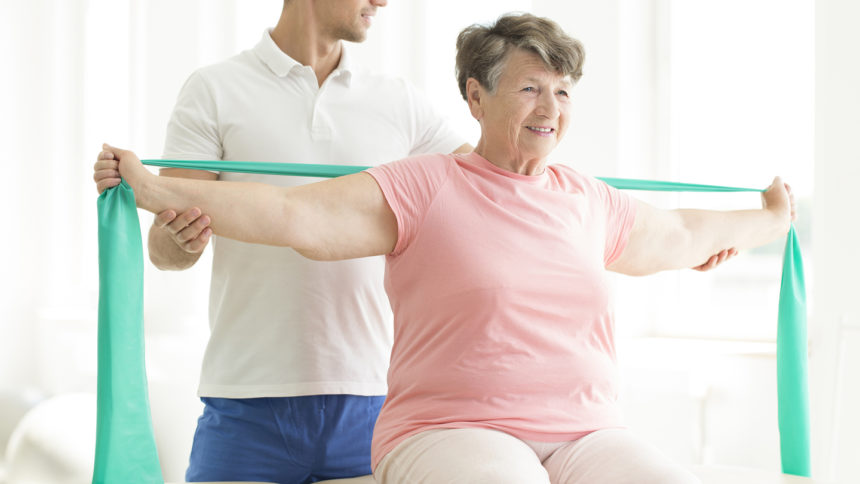
Seniors with sarcopenia (age-related skeletal muscle loss) improved their sleep and inflammatory status when participating in a 12-week course of resistance exercise training, a new study has found.
Sarcopenia is linked to chronic inflammation, cognitive impairment, heart disease and respiratory disorders. The condition has been found to affect 15% of adults over the age of 60, and 46% of those aged 80 and older, according to the researchers.
In the study, investigators examined how resistance training could help address links between sarcopenia, sleep deprivation and age-related inflammation. Fourteen adult participants with diagnosed sarcopenia and an average age of 75 took part in the training program three times per week for three months.
A same-sized control group received health information about sarcopenia only, and all participants were assisted by physical education professionals, physical therapists, nutritionists and physicians.
Exercises consisted of eight for the large muscle groups in the chest, back, shoulders, arms (biceps and triceps) and the front and back of the thighs. The program progressed from moderate intensity to 80% of maximum force in the last eight weeks of the study.
All participants also received testing, including blood work, body composition analysis, physical function assessment and sleep analysis.
Improvements seen
Participants in the resistance training cohort improved on all metrics of muscle strength, including handgrip and leg torque measured with a dynamometer. Investigators also observed improvement in objective and subjective sleep quality, and a reduction in inflammation based on the blood work.
“Older people with sarcopenia tend to sleep badly, and the study showed that physical training both attenuated their sarcopenia and improved their sleep,” Helton de Sá Souza, a professor at University of Viçosa in Brazil, said in a statement. “This may be due to an increase in two anti-inflammatory cytokines (IL1ra and IL10) associated with muscle metabolism efficiency and possibly with sleep quality,” Souza explained.
Full findings were published in the International Journal of Environmental Research and Public Health.
Related articles:
Resistance training benefits outweigh risks in seniors, position paper asserts
High-intensity rehab improves function in nursing-home eligible PACE participants
Strength training tailored to older men and women maximizes benefits, physiologists say




